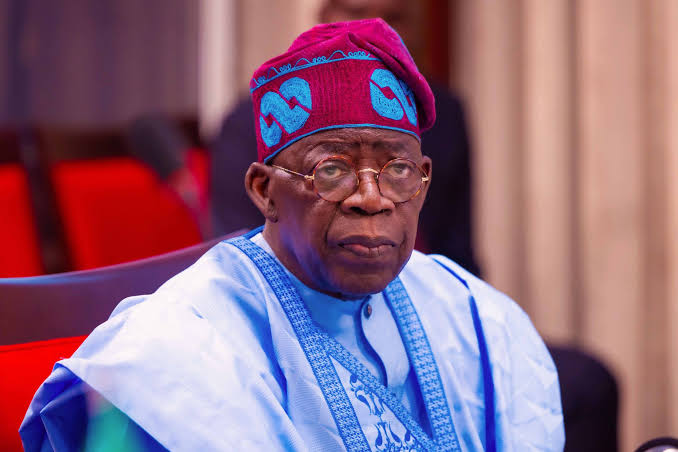
Faith Nyasuguta
Nigeria’s President, Bola Tinubu, is challenging the pervasive “blanket stereotyping” of Nigerians as cybercriminals, asserting that such generalizations distort the true image of the West African nation.
Tinubu emphasized that such a narrative unfairly stains the reputation of the majority of law-abiding citizens.
Addressing the issue during a private tour in France, President Tinubu conveyed his concerns about the longstanding mislabeling of Nigerians, stating that such misrepresentation fails to capture the diverse and resilient nature of the nation.
Deputy President Kashim Shettima read Tinubu’s speech, where he highlighted the lack of statistical evidence supporting the association of internet crimes with the entire Nigerian populace.
Tinubu went on to stress that everyday Nigerians are hardworking, honest citizens who make significant contributions to various global fields, including artificial intelligence and medicine. He urged against overlooking the positive contributions of the majority due to the actions of a few.
In 2020, the FBI ranked Nigeria 16th among countries most affected by cybercrime. The Nigerian Communications Commission reported that cybercrime costs the country $500 million (£395 million) annually.
President Tinubu’s remarks aim to challenge stereotypes and promote a more nuanced understanding of Nigeria and its people, urging the international community to recognize the nation’s diverse talents and contributions beyond the negative portrayal associated with cybercrime statistics.
Additionally, Tinubu’s advocacy for a fairer portrayal underscores the importance of recognizing the positive aspects of Nigeria’s contributions to various fields and not letting the actions of a few overshadow the accomplishments of the majority.

It is crucial to note that while cybercrime is a concern globally, attributing it solely to one nation or its people oversimplifies the issue. The statistics highlight the need for collaborative efforts, both domestically and internationally, to address cybersecurity challenges and combat cybercriminal activities.
Africa, like other regions, has experienced an increase in cybercrime activities in recent years. Cybercriminals often exploit vulnerabilities in technology infrastructure, targeting individuals, businesses, and even government institutions. Common cyber threats include phishing, ransomware attacks, identity theft, and financial fraud.
Over the years, there have been reports of significant cyber incidents in Africa:
South Africa: South Africa has faced various cyber threats, including ransomware attacks on critical infrastructure and businesses.
Nigeria: Nigeria has been associated with cybercrime activities, with instances of phishing scams, business email compromise, and other fraudulent schemes.
Kenya: Kenya has also encountered cybersecurity challenges, including attacks on financial institutions and government websites.
RELATED:




